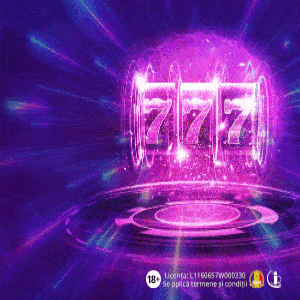
Mircea Lucescu took charge, with a touch of anger, of Romania's 1-0 victory over Austria. It was the kind of match that the coach quickly transformed into a personal show of strength, this time putting the players on the back burner. Those who, some time ago, had been brought forward to bear the shame of defeat against Bosnia or a draw with Cyprus, were now treated like pawns in a game that "Mister" had won all by himself.
This change of tone says a lot about Mircea Lucescu. Pampered by the press for decades - often used as a symbol of professionalism and as a "scarecrow” in the journalists' fight with the heads of the Romanian Football Federation, whether they were called Mircea Sandu or Răzvan Burleanu -, Lucescu has become accustomed to an image of undeniable authority. His rich and spectacular career has fueled this status. Few Romanian coaches can rival his record, the great teams he has coached, or the length of his career, which exceeds five decades.
But glory comes at a price. And in recent years, that price seems to be nervousness. Increasingly irritable, the coach seems convinced that the entire world - from players and fans, to journalists and politicians - owes him something. That, after so many trophies, victories, and decades in football, he deserves special treatment, continuous veneration.
Annoyed by a trivial story - that he had missed a national team training session because he had fallen asleep during a massage - Lucescu started a personal war with the journalist who had spread the information. The conflict, which initially seemed like a minor dispute, turned into a case of principle. The coach asked the management of the TV station he works for to fire the reporter if he wanted to receive any more statements from him. A request that recalls the old reflexes of a world in which authority was not discussed, but executed. Since then, Lucescu's speech has noticeably hardened. Any criticism is interpreted as a lack of respect. Any more pressing question - as a personal offense. He often invokes his age, as a shield against those who reproach him for his rigidity, and uses it as a form of moral intimidation: "I'm 80 years old, I know better than you.” In a sense, he is right: he knows a lot. But experience does not exempt anyone from making mistakes, and the merit of the past should not become a dogma of the present.
Like many people in Romanian football, Mircea Lucescu seems to have forgotten a simple truth: when he talks to a journalist, he is not talking to that person - to Popescu, Ionescu or Vasilescu - but to the public. With hundreds of thousands of people who watch, listen, judge. The relationship with the press is not a relationship of friendship or obedience, but one of public responsibility. Football, more than any other field, lives through transparency and dialogue. Therefore, when a coach of Mircea Lucescu's stature rejects criticism, refuses uncomfortable questions and closes himself in a tower of superiority, he sabotages his own message. Because the image he transmits is no longer that of a teacher of generations, but of a man tired of his own past.
No one disputes the value of Lucescu's career. Few Romanian coaches have brought so much prestige to our football. From victories with Shakhtar Donetsk to performances in Italy and Turkey, his name is associated with success. But football, like life, has an unforgiving rhythm: yesterday's success does not guarantee tomorrow's admiration. A modern coach must understand that not only the result matters, but also the way he manages the relationship with those around him - with the team, with the press, with the public. In a world of social networks and real-time reactions, authority is no longer imposed, it is earned daily. Therefore, the victory with Austria, no matter how valuable it may be, should not be used as an opportunity for personal revenge. Because, after all, the national team does not belong to a man, but to a country. And footballers, even when they make mistakes, deserve the respect and protection of their coach, not his public reproaches.
Mircea Lucescu was, is and probably will remain an imposing figure in Romanian football. But his big challenge now is not a qualification or a trophy. It is to understand that the real victory, at 80 years old, is no longer the one on the field, but the one of wisdom: knowing when to speak, when to keep quiet and, above all, how not to lose the respect of others when you think you deserve it.









































Reader's Opinion